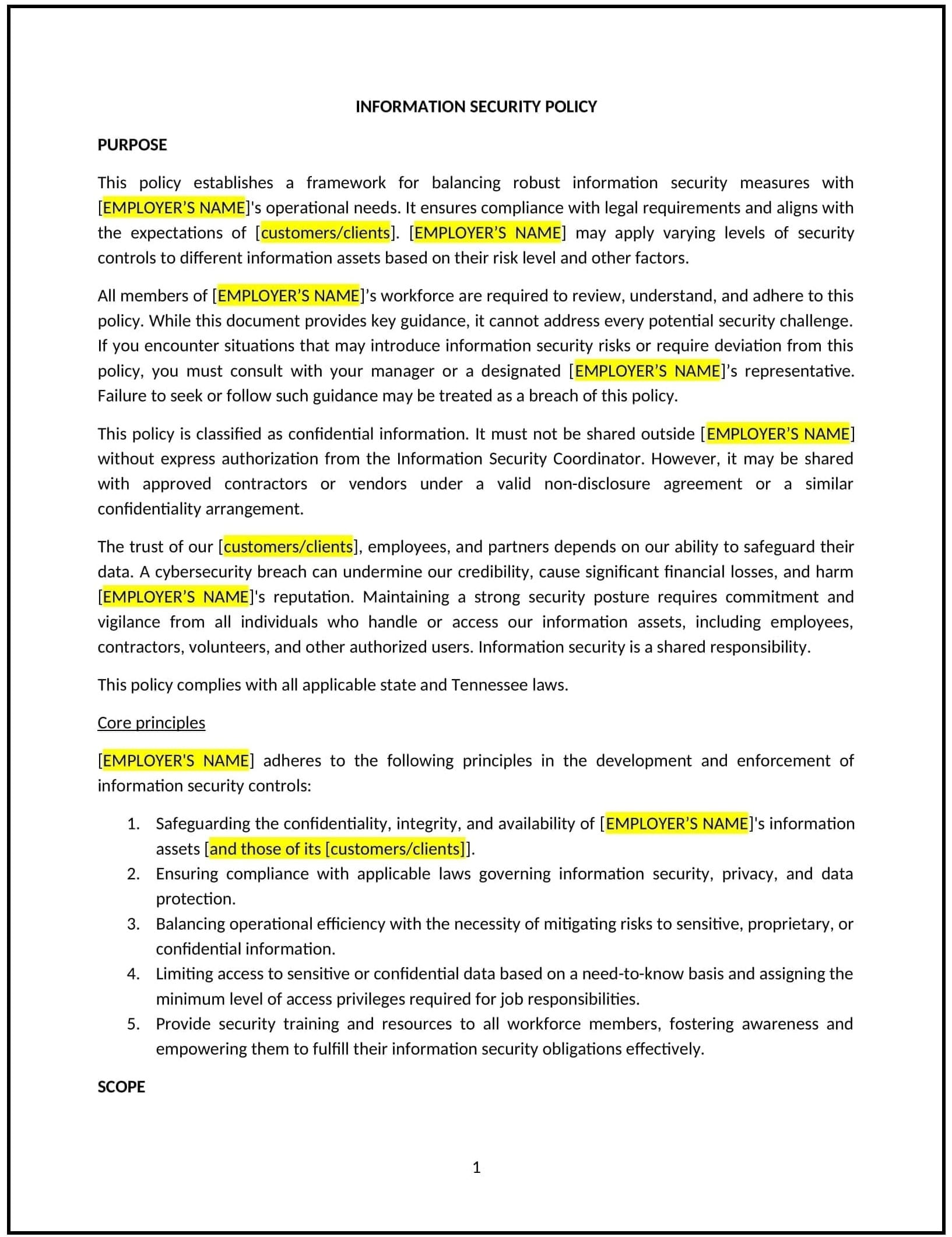Information security policy (Tennessee): Free template
Got contracts to review? While you're here for policies, let Cobrief make contract review effortless—start your free review now.

Customize this template for free
Information security policy (Tennessee)
This information security policy is designed to help Tennessee businesses establish guidelines for protecting sensitive data, such as customer information, employee records, and intellectual property. It outlines procedures for securing data, preventing breaches, and responding to incidents.
By adopting this policy, businesses can safeguard sensitive information, reduce risks, and align with best practices for data security.
How to use this information security policy (Tennessee)
- Define sensitive data: Clarify what constitutes sensitive information, such as financial data, personal identifiers, or trade secrets.
- Set access controls: Outline steps for restricting access to sensitive data, such as password protection and role-based permissions.
- Address encryption requirements: Specify how data should be encrypted during storage and transmission.
- Establish incident response procedures: Provide steps for identifying, containing, and reporting data breaches.
- Train employees: Educate staff on data security best practices and their roles in protecting sensitive information.
- Review and update: Assess the policy annually to ensure it aligns with evolving business needs and security threats.
Benefits of using this information security policy (Tennessee)
This policy offers several advantages for Tennessee businesses:
- Protects sensitive data: Reduces the risk of breaches or unauthorized access to confidential information.
- Enhances trust: Builds confidence with customers, partners, and stakeholders by safeguarding their data.
- Reduces risks: Minimizes the potential for financial losses, legal disputes, or reputational damage.
- Promotes accountability: Encourages employees to take responsibility for data security.
- Aligns with best practices: Supports a structured approach to information security.
Tips for using this information security policy (Tennessee)
- Communicate the policy: Share the policy with employees and include it in the employee handbook.
- Provide training: Educate staff on data security best practices and their roles in protecting sensitive information.
- Monitor compliance: Regularly review data handling practices and security measures.
- Address issues promptly: Take corrective action if data breaches or security violations occur.
- Update regularly: Assess the policy annually to ensure it aligns with evolving business needs.